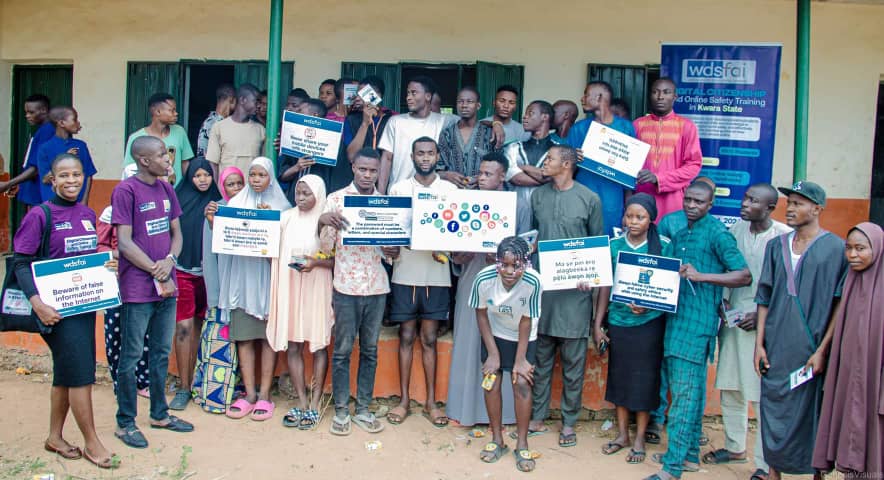Children and young people from five selected rural communities in Kwara State have been trained on digital citizenship, online safety, and identifying online misinformation.
The training programs took place in the Ile-Apa, Asomu, Sentu, Elemere, and Ilota communities within the Ilorin East and South Local Government Areas of the state.
During one of the sessions, Nafisat Bakare, Executive Director of the non-profit organization Webfala Digital Skills for All Initiative (WDSFAI), highlighted that these trainings were part of her organization’s ongoing advocacy to enhance understanding of digital citizenship and online safety among young people.
Bakare noted that similar training programs had previously been conducted for teachers and parents in the state, emphasizing her organization’s commitment to equipping children and young people with the knowledge and tools to protect themselves against online risks and threats.
She explained that while the internet offers opportunities for learning, creativity, and social interaction, it also presents potential dangers, particularly to vulnerable children and young people.
“Some of these risks include cyberbullying, online predators, impersonation, exposure to inappropriate content, and hate speech. This underscores our commitment to raising awareness about these issues and fostering a safer online environment for our children,” she added.
Regarding the choice to conduct the training in rural communities, the organization’s Director of Communications and Strategy, Hameed Muritala, stated that it was to ensure every child, regardless of location, has the knowledge and tools to navigate the digital world safely.
“For many participants in these underserved communities, this was their first exposure to such crucial information. The training covered a wide range of topics, including identifying online risks for children, understanding misinformation and disinformation, recognizing fake news, and setting up privacy settings.
“Participants also learned about password protection, spotting red flags of online child sexual abuse and exploitation, and how to report crimes against children online. The sessions were well-received, with attendees finding the information both informative and practical for their daily lives,” he said.






